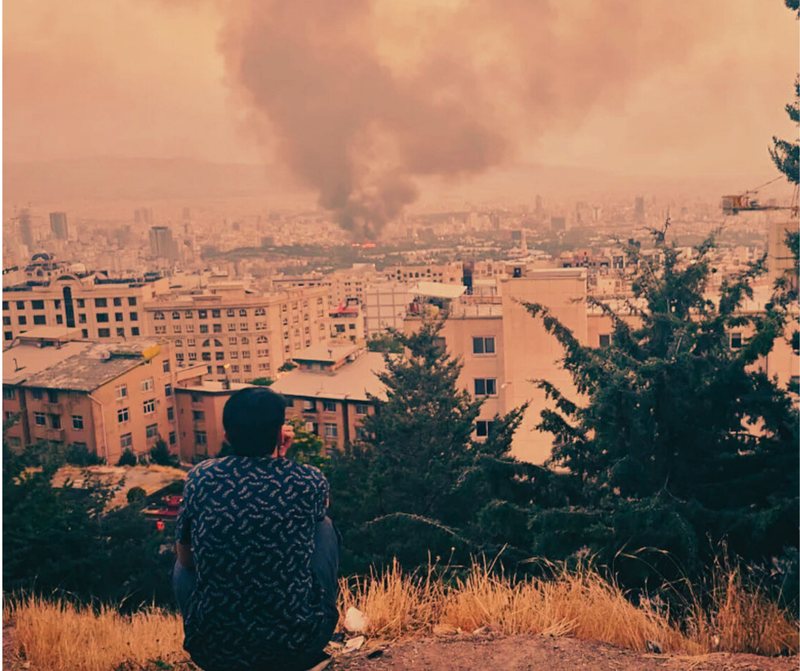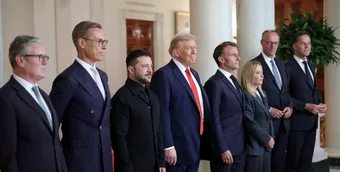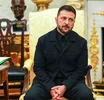
The fate of Iran will be written by the Iranians themselves!


"Do you think I'll ever see Iran again?"
The question hangs in the air – quiet, fragile, heavy, full of longing. My father asks it in the twilight of his life, as he battles the cancer that is trying to end him. It is not just his voice that I hear, but the echo of millions of others: those who were forced to flee the land they loved, and those who were left behind, and who are still waiting for the day when Iran can become… Iran again.
He fled to London after the 1979 revolution, narrowly escaping the clutches of a theocracy that replaced a deposed monarchy. My father served this monarchy loyally, believing that despite its flaws as an autocracy, it was modernizing, socially liberal, and politically reformable: the opposite of the Islamic Republic.
Since he fled, he has never returned to Iran. In exile, he witnessed a regime that imprisoned, tortured, and killed without mercy. A regime that tore him from his land, but that never managed to extinguish his hope.
What about the others? Those who remained. Our families and loved ones. Those who endured the scourge of oppression and nearly five decades of constant insecurity. They too ask: When will we reclaim our country from this long, dark night?
I grew up between nostalgia for a lost homeland and the reality of exile. The cries outside the Islamic Republic embassy, the clatter of cups of Persian tea at dissident gatherings in our small apartments, the news of assassinations and murders that took our friends and dreamers. That chilling mix of sadness and defiance shaped us. And now, as war darkens the horizon, we feel it again: pain for the innocent, hope for the downfall of the persecutors.
When I speak to civil society figures inside Iran, it seems that few Iranians directly blame foreign hands for this war. While every country has many voices, many Iranians believe that the Islamic Republic has never been a defender of the nation, but only of its revolution. Even the Revolutionary Guard Corps does not bear the name of Iran – but of a violent ideology that devours its own children and brings them war.
In a joint statement, Nobel laureates Narges Mohammadi and Shirin Ebadi, directors Jafar Panahi and Mohammad Rasoulof, as well as civil society representatives, called on world leaders to stop uranium enrichment and the bloodshed of innocents in Iran and Israel.
Domestically, optimism and fear battle for the people's souls.
Për dekada, shumë prej nesh u bëmë thirrje liderëve botërorë: refuzoni njëkohësisht përkëdheljen dhe luftën ndaj Republikës Islamike. Kishte një rrugë tjetër – të izolohej regjimi dhe të fuqizohej populli. Pak e zgjodhën këtë. Shumë pyetën: “A duan vërtet iranianët ndryshim?” – sikur nuk i dëgjonin protestuesit iranianë të thërrisnin “Vdekje diktatorit” dhe “Vdekje Khamenei-t” në rrugë. Ndoshta tani – teksa këto thirrje jehojnë nga çatitë e Teheranit, edhe në kohë lufte – do t’i dëgjojnë më në fund.
Që prej nisjes së përplasjes, disa prej arkitektëve të terrorit të regjimit janë vrarë në bunkerë e krevate. Por bashkë me ta janë vrarë edhe një poet, një sportist, dhe fëmijë – premtimi i ndritur i së nesërmes që shuhet bashkë me errësirën e të vjetrës. Shumë prej nesh e shohin me dhimbje se si bashkëkombësit tanë braktisin shtëpitë, të dëshpëruar për një strehë larg shtypjes dhe shkatërrimit.
Siç pyet reperi disident Toomaj Salehi: “Si mund të evakuohen mbi 9 milionë njerëz – pa karburant, shpesh pa kursime të mjaftueshme për të lëvizur, dhe pa një shtëpi të dytë në një qytet tjetër?”
Iranianët e shohin hipokrizinë e dhimbshme të zyrtarëve të regjimit që sot derdhin lot për civilët, ndërkohë që në vitin 2019 vranë 1,500 protestues, më shumë se 500 të tjerë gjatë kryengritjes “Grua, Jetë, Liri” të vitit 2022, dhe shumë të tjerë gjatë katër dekadave të tiranisë.
Megjithatë, regjimi vazhdon të kapet pas skenarit të tij autoritar: mbyll internetin, censuron lajmet. Në vend që t’u ofrojë qytetarëve siguri dhe mbrojtje gjatë luftës, i detyron studentët të japin provime sikur asgjë nuk ka ndodhur, dhe shton shtypjen e fjalës së lirë.
Mungesa e legjitimitetit të Republikës Islamike nuk shfaqet vetëm në shkeljet mizore të të drejtave të njeriut, por edhe në dështimet strategjike. Siç thotë Kylie Moore-Gilbert: “Duke shtypur kundërshtimet, burgosur të pafajshmit, dhe dështuar në operacione jashtë vendit – Iranit nuk i ecën më asgjë.”
Së fundmi, spiunët dhe pilotët izraelitë kanë arritur të dëmtojnë seriozisht aftësitë kundërpërgjigjëse të Iranit.
Të gjithë ata që besojnë vërtet në paqen, e refuzojnë si luftën agresive, ashtu edhe terrorin në çdo formë. Mospërfillja ndaj njërës i shkatërron themelet tjetrës.
Asnjë fuqi e jashtme nuk do ta shpëtojë Iranin. Epoka e shpëtimtarëve të huaj ka marrë fund. Nuk jetojmë më në botën e perandorive unike apo aleancave të thjeshta. Çdo komb duhet të kujdeset për kopshtin e vet. Por asnjë tokë nuk është e shkëputur. Për gati një gjysmë shekulli, regjimi në Iran ka helmuar më shumë se tokën e vet – infeksioni i tij është përhapur në Jemen, Siri, Irak, Gaza, Liban.
Fati i Iranit do të shkruhet nga vetë iranianët – jo në kryeqytete të huaja apo në dhoma të mbyllura, por në rrugët e tyre, me zërat e tyre dhe përmes përpjekjes së tyre.
And as long as those who dream of a liberal democracy remain divided, as long as personal ambitions, old wounds, and ideological divisions hinder a common goal – I fear the answer to my father's question.
For the sake of a free Iran, a stable region, and a world at peace – while we demand restraint and respect for international law – we must also ensure the sovereignty of the Iranian people, not their oppressors./TIME – Bota.al

The Ukraine summit that ignored the tough questions
ideas
top
Alfa recipes
TRENDING 
services
- POLICE129
- STREET POLICE126
- AMBULANCE112
- FIREFIGHTER128



























